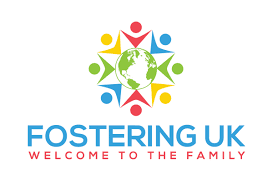Traits of a Good Foster Parents
According to the UK Fostering Being a foster parent is quite similar to being a parent to any other child, with the exception that the child you are fostering can have experienced trauma or a rough upbringing. Foster parenting can be a rewarding experience, but it requires a significant amount of patience, compassion, and dedication. Foster parents must be kind and patient, and they must be willing to devote as much time as necessary to the kid. Some qualities of a good foster parent include those listed below:
- Empathy: Being a good foster parent means being able to understand and relate to the child's feelings and experiences. This is important because it allows foster parents to provide the best possible care for their foster children.
- Positivity: Foster parenting presents an opportunity to positively influence a child's life, even though it can be difficult at times. A good foster parent should be dedicated to the child's success and have a positive outlook on life.
- Be patience: Foster children sometimes come from challenging homes. They could have endured abuse, neglect, or trauma. As a result, individuals could exhibit problematic conduct or have trouble adjusting to new surroundings. A good foster parent will be patient and open to collaborating with the youngster.
- Good Communication: Foster parents should have good communication skills to be able to understand the child's needs and communicate with the child's social worker and other members of the child's support team.
- Flexibility: Foster parents need to be flexible to changes in a child's care plan, schedule, or behavior. They should be able to adapt to the child's needs and be able to provide the stability and support the child needs.
- Nurturing: Foster parents play an important role in providing a nurturing environment for the child that promotes their physical, emotional, and mental well-being. Foster parents should provide support and love to the child, and create an environment that is safe and conducive to the child's development.
- Advocacy: Foster parents play an important role in the lives of the children they care for. They should be advocates for the child's best interests and work to ensure they receive the necessary services and resources to thrive. This may include ensuring the child has access to quality healthcare, education, and other basic needs.
- Teamwork: If you want to be a foster parent, you need to be prepared to work with the child's social worker, therapist, and other professionals who are involved in the child's care. You'll need to be able to communicate well, follow directions, and advocate for the child.
- Commitment: Foster parenting is a lot like being a parent, but often with stricter terms and set end dates. A good foster parent should always be willing to provide a stable and supportive environment for the child, just like any other parent.
- Excellent problem-solving abilities: Foster children may encounter a variety of difficulties. A competent foster parent should be able to recognise issues and collaborate with experts to find solutions.
- Resilience: Foster parenting may be difficult, thus a successful foster parent must be resilient in order to manage stress and disappointments while keeping a positive view and attitude.
All things considered, being a good foster parent necessitates a deep dedication to the welfare of foster children as well as a readiness to give them the love, stability, and support they require to develop and thrive with UK Fostreing.




Comments
Post a Comment